Are you looking to ensure your business stays on the right side of competition law? Understanding and implementing compliance measures is crucial for protecting your organization from potential legal pitfalls. In this guide, we'll break down essential elements and best practices to help you navigate the complexities of competition law with confidence. Join us as we delve deeper into the topic and equip you with the tools you need to foster a culture of compliance.

Introduction and Statement of Purpose
Competition law compliance ensures fair business practices and promotes a healthy marketplace. Organizations, such as multinational corporations and small enterprises, are subject to various regulations, including the Sherman Act (United States) and the Competition Act (Canada), aimed at preventing anti-competitive behavior. Effective compliance programs help identify potential legal risks, enhance corporate reputation, and foster consumer trust. This commitment to ethical business operations should result in a culture that not only adheres to legal requirements but also emphasizes fair competition and respect for consumer rights. Additionally, ongoing training and monitoring are essential components of a robust compliance strategy, ensuring that all employees understand and adhere to these critical principles.
Overview of Competition Laws
Competition laws, also known as antitrust laws, are regulations that promote fair competition and prevent monopolistic practices within various markets. These laws, enforced by authorities such as the Federal Trade Commission (FTC) in the United States and the European Commission in the European Union, prohibit anti-competitive agreements, abusive conduct by dominant firms, and mergers that substantially lessen competition. Key statutes include the Sherman Act, which addresses anti-competitive behavior since 1890, and the Clayton Act, which implements more specific provisions against mergers and discriminatory pricing practices. Violations can lead to penalties, including hefty fines and corrective actions, illustrating the importance of compliance for businesses aiming to maintain a fair marketplace and avoid legal repercussions.
Compliance Guidelines and Best Practices
Compliance with competition law is essential for ensuring fair market practices in corporate environments. Organizations must create and enforce detailed compliance guidelines that adhere to relevant legislation, such as the Sherman Act in the United States or the Treaty on the Functioning of the European Union in Europe. Best practices include conducting regular training sessions for employees, ensuring awareness of prohibited activities like price fixing, market allocation, and bid rigging. Additionally, companies should implement robust reporting mechanisms, encouraging employees to report suspicious behavior without fear of retaliation. Periodic audits of business agreements and practices can further ensure adherence to competition regulations, ultimately promoting a culture of compliance and integrity within the organization.
Potential Consequences of Non-Compliance
Non-compliance with competition law can lead to severe consequences for businesses. Monetary penalties can be imposed, often reaching significant percentages of annual global turnover, which can escalate into millions or even billions of dollars. In 2021, the European Commission levied fines exceeding EUR1.5 billion ($1.7 billion) against companies for antitrust violations. Additionally, reputational damage can result from public scrutiny and negative media coverage, leading to loss of consumer trust and market share. Legal actions can be initiated by regulatory authorities such as the Federal Trade Commission (FTC) in the United States, resulting in prolonged investigations and costly litigation. Companies may also face injunctions that prohibit certain business practices, restricting operational flexibility. In severe cases, criminal charges against individuals associated with the company can arise, potentially leading to imprisonment and further tarnishing corporate reputation. Non-compliance can, therefore, impose significant financial, legal, and reputational risks that undermine a company's long-term sustainability and market presence.
Reporting and Contact Information
Competition law compliance requires clear reporting structures and accessible contact information within organizations. Employees must understand how to report potential violations, including anti-competitive practices like collusion, price-fixing, or abuse of market dominance. A designated compliance officer should be available, ideally with a background in antitrust law (often possessing credentials such as a Juris Doctor degree or equivalent). Reporting hotlines should be operational 24/7, ensuring anonymity and confidentiality in compliance matters. Regular training sessions, particularly in jurisdictions with strict laws like the European Union (with its extensive competition regulations under Articles 101 and 102 of the Treaty on the Functioning of the European Union), can reinforce understanding of compliance protocols and enhance overall corporate culture regarding competition law practices.

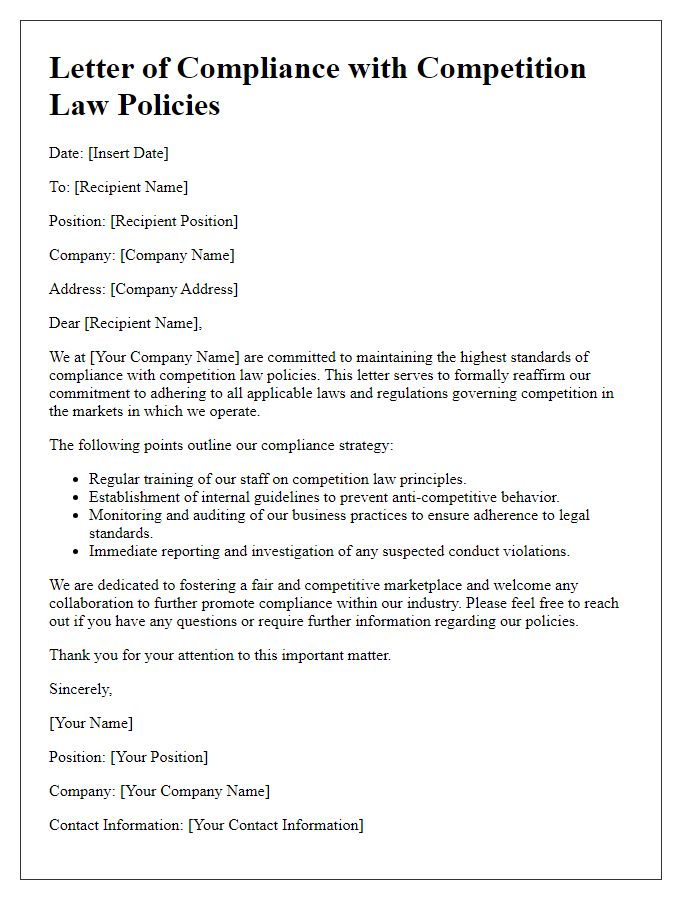
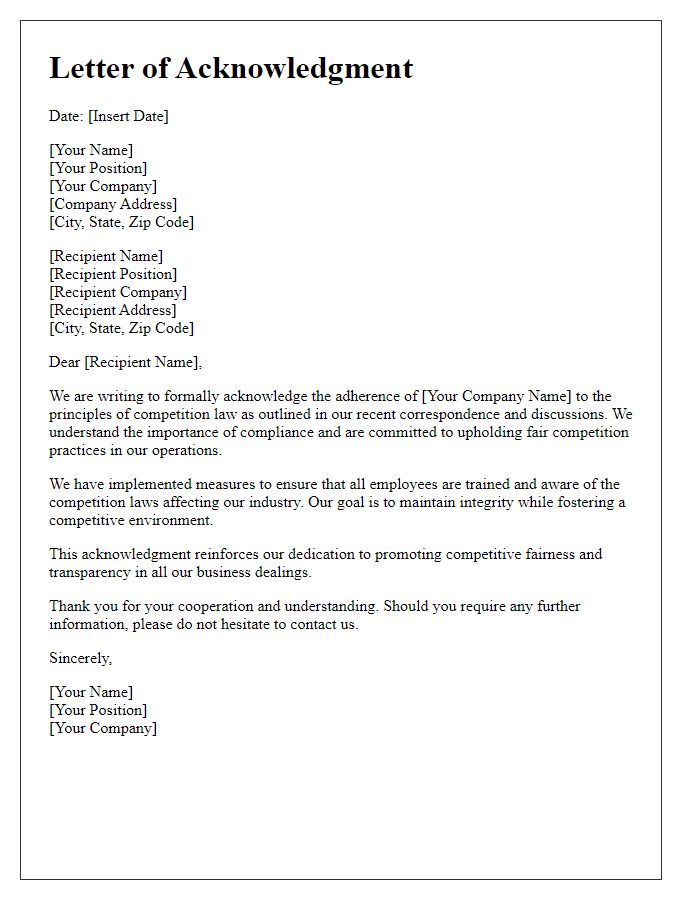
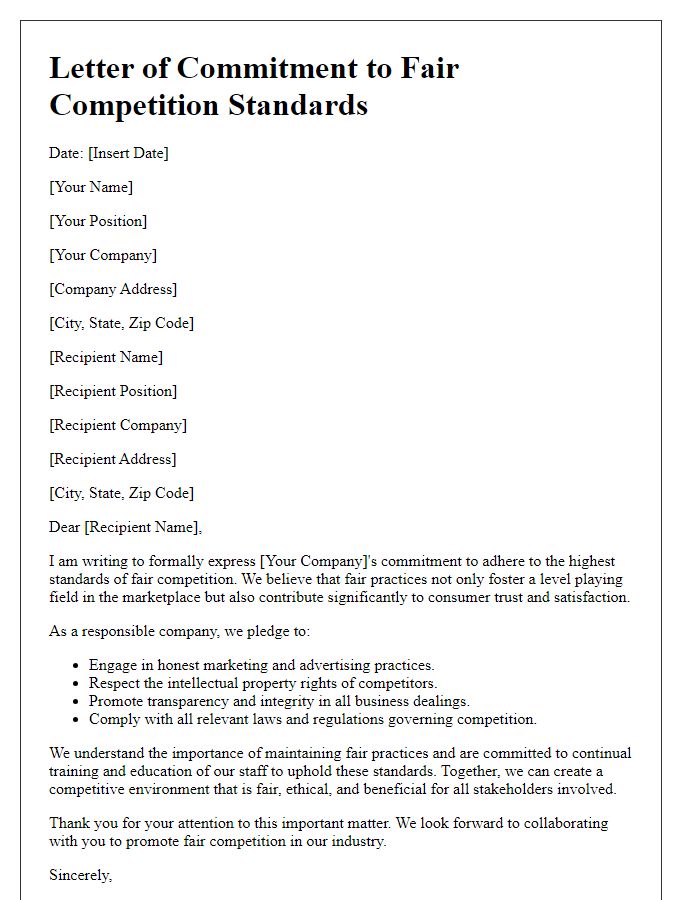
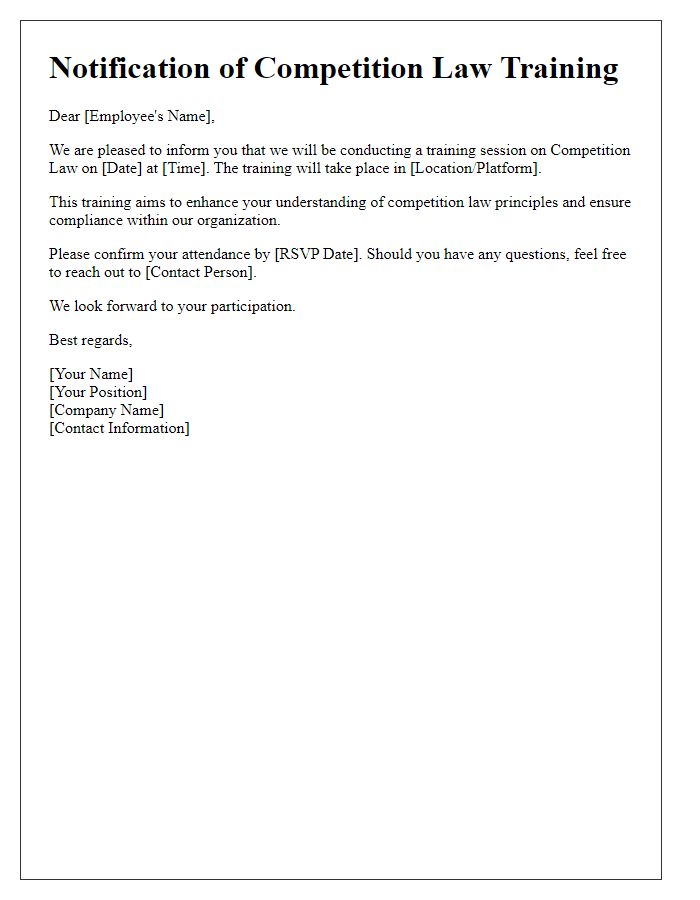
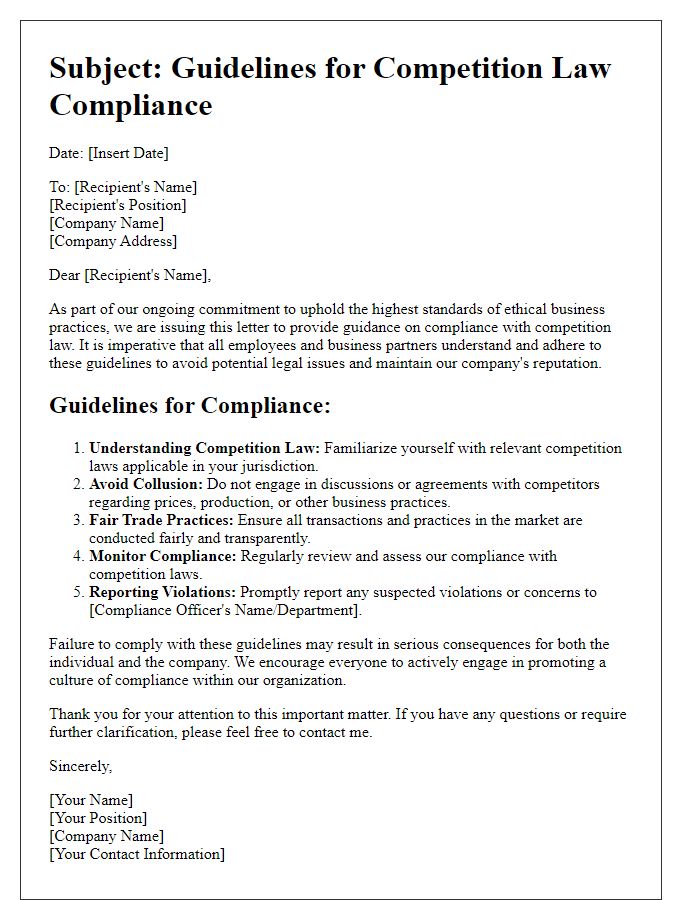
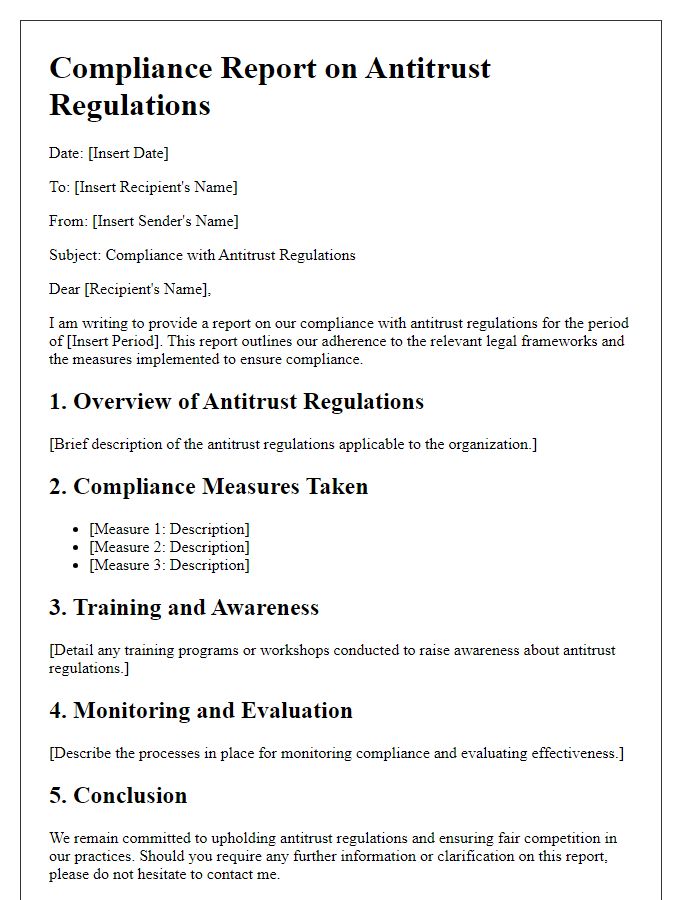
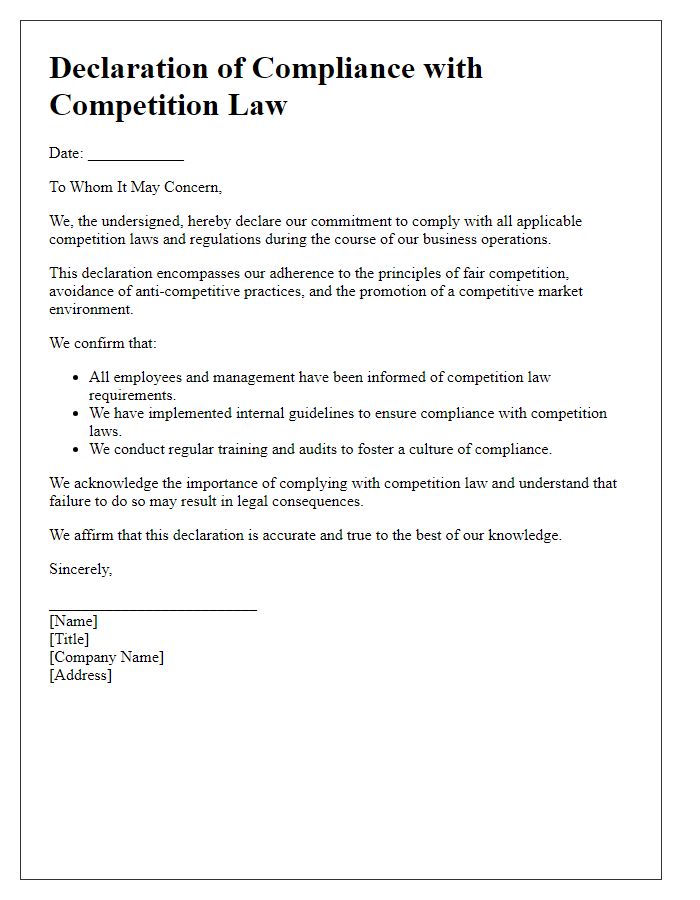
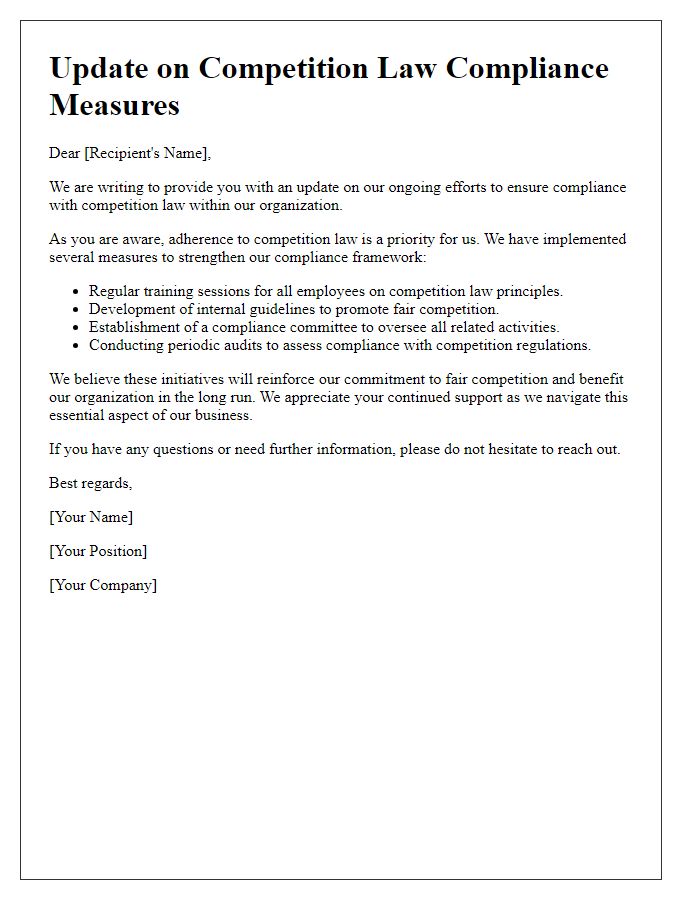
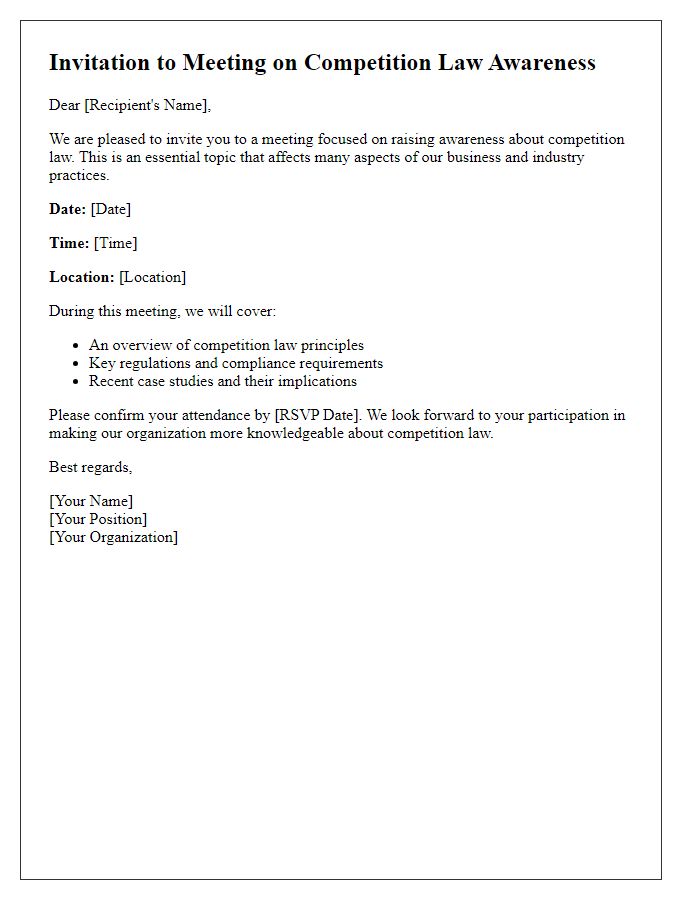
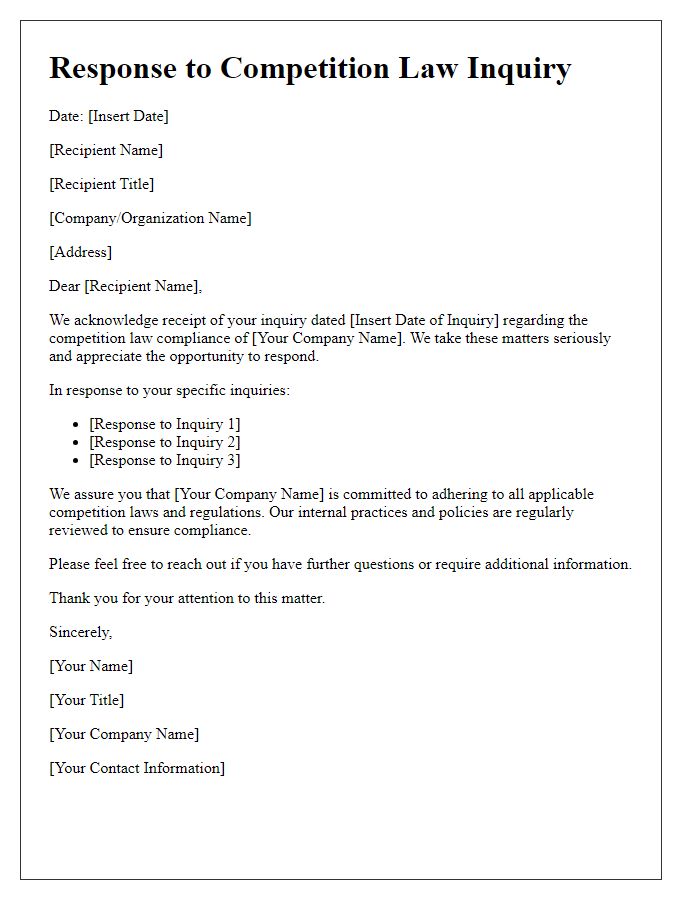


Comments